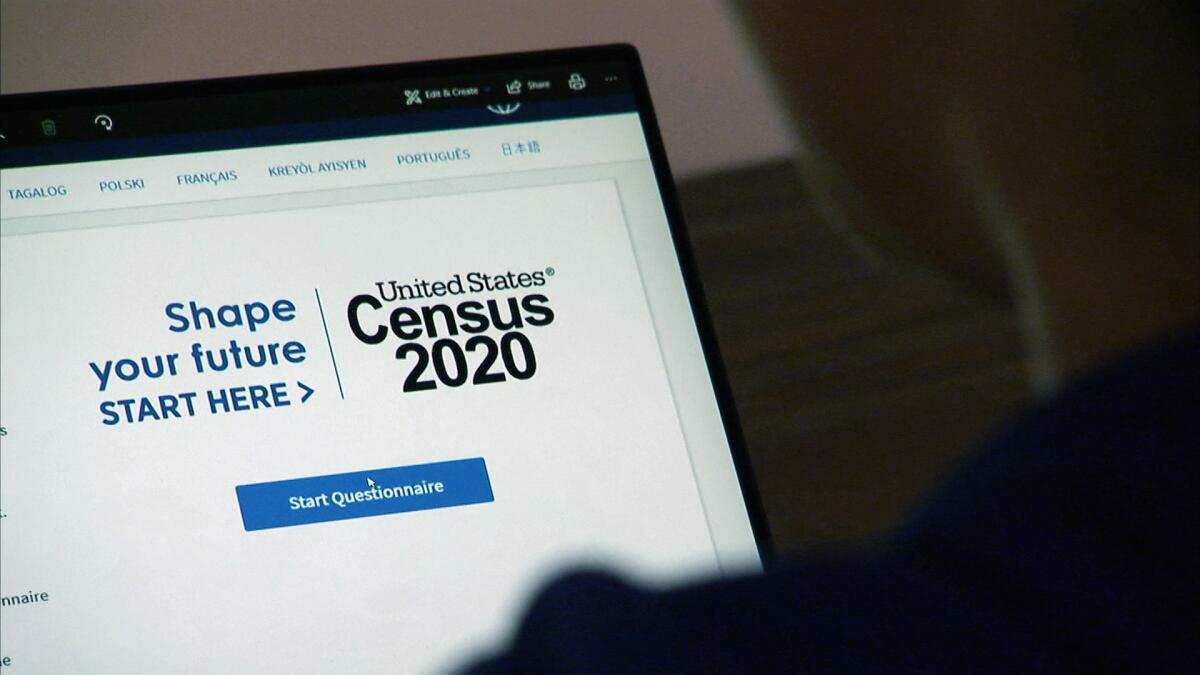Census will rush to complete its count by Sept. 30, a month earlier than planned

WASHINGTON — The Census Bureau is ending efforts to count the country’s population on Sept. 30 — a month sooner than planned — the bureau’s director announced Monday.
Only 63% of the nation’s estimated 121 million households have responded to the 2020 census by mail or phone or online. The last-minute change to the timeline raises concerns about the accuracy of the count, which is used to determine representation in Congress and state legislatures.
The statistical information collected every 10 years is also the bedrock for federal and local policy decisions such as how much federal money states and cities receive, where to build water and sewer systems, where to locate fire departments, even such minutiae as how many first-grade teachers a school district should hire. Businesses and nonprofit groups use it to determine where to expand or contract.
Door-knocking by census takers will end Sept. 30, as will the option to respond by other methods. In order to obtain as many responses as possible by that date, the bureau will be hiring additional census takers and provide incentives for those who work the maximum hours possible.
The agency needs time to process and verify the count by Dec. 31, the deadline set under federal law, said Steven Dillingham, the Census Bureau director.
“We will improve the speed of our count without sacrificing completeness,” he said in the statement. “Under this plan, the Census Bureau intends to meet a similar level of household responses as collected in prior censuses, including outreach to hard-to-count communities.”
In April, Commerce Secretary Wilbur Ross, who oversees the bureau, asked Congress to allow four extra months to finish the count and present the results to the president.
The COVID-19 outbreak has delayed much of its outreach, including the scheduled knocking on millions of doors to gather information about people who have not already responded and entreaties into traditionally difficult-to-count populations, including college students, the homeless and people living in rural areas.
Door knocking that was supposed to begin in April and end in July has just recently begun in a handful of communities and will expand nationwide Aug. 11.
In 2010, when online response was not an option, about 75% of households responded to the census by mail or phone.
The Democratic-led House passed legislation to allow the agency additional time, but the Republican-led Senate has not followed, and the administration appears to have withdrawn its request. Congress could delay the deadline in the current coronavirus economic aid package being considered, but it is unclear if that is being considered.
In a congressional hearing last week, four former census directors raised concerns that without extra time to follow up in person with households that don’t respond and to visit traditionally hard-to-contact communities, many people won’t be counted, lowering the federal and state funds tied to their regions’ populations and lessening their political representation.
“The chances of having a census accurate enough to use is unclear — very, very much unclear,” said Kenneth Prewitt, who was director from 1998 to 2001.
The agency had sent mixed signals for several days about whether it would continue to push for the additional time and when door knocking would end.
More to Read
Get the L.A. Times Politics newsletter
Deeply reported insights into legislation, politics and policy from Sacramento, Washington and beyond. In your inbox three times per week.
You may occasionally receive promotional content from the Los Angeles Times.











